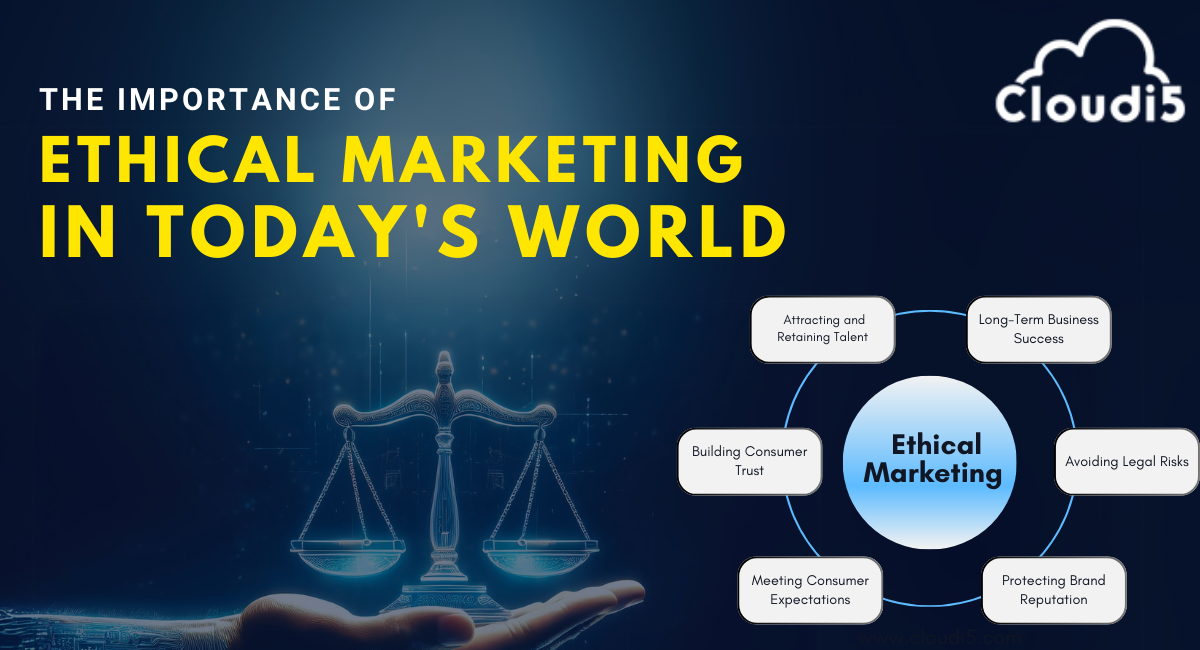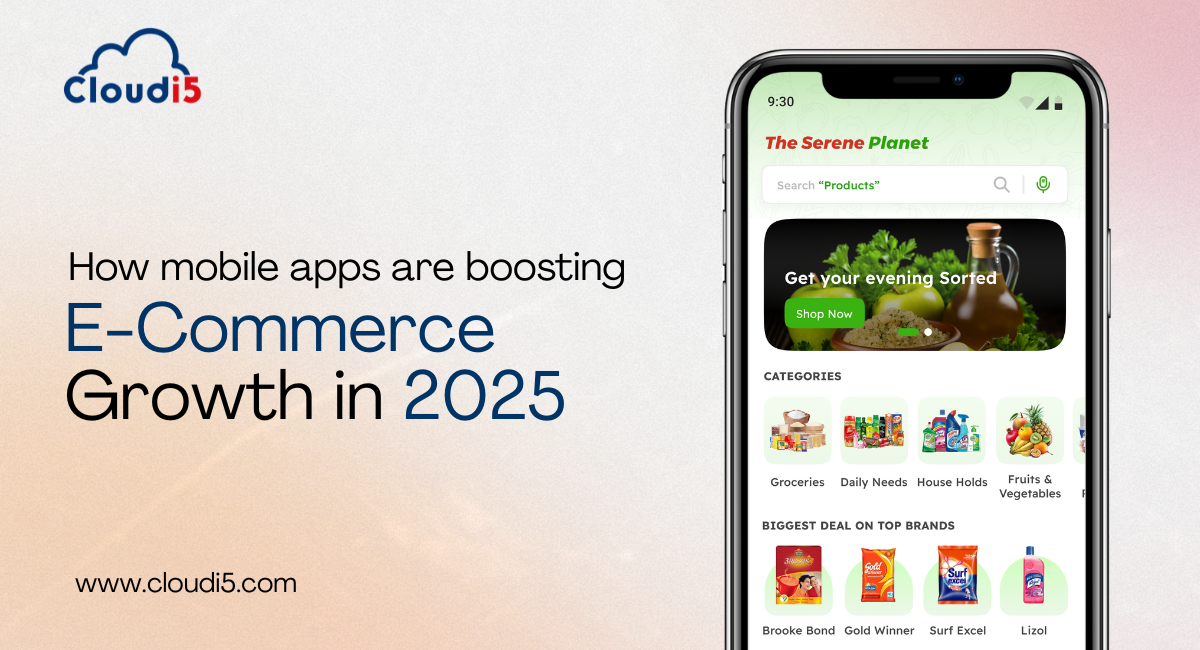
The Importance Of Ethical Marketing In Today's World
What is Ethical Marketing?
Ethical marketing is promoting products or services in a truthful, transparent, and responsible way. It involves being honest with customers, respecting their privacy, and ensuring your business practices are fair and aligned with good values. In short, ethical marketing is about doing the right thing for both your customers and your business.
Definition and Overview:
Ethical marketing focuses on being clear and honest about what your product can do, avoiding misleading claims, and prioritizing fairness and sustainability. The goal is to build trust with customers and foster long-term relationships. The benefits of ethical marketing include gaining customer loyalty, improving your brand’s reputation, and contributing positively to society, instead of just focusing on making a quick sale.
Key Principles of Ethical Marketing:
- Honesty: Always be truthful about what your product can do—no exaggerations.
- Fairness: Treat customers with respect, offering fair prices and clear information.
- Transparency: Be open about how your products are made and what’s inside them.
- Social Responsibility: Make sure your business helps the community or the environment.
- Respecting Privacy: Protect customer information and use it responsibly.
Why Ethical Marketing Matters Today
In today’s world, consumers are more informed and conscious about the products they buy. They want brands to be transparent, honest, and responsible.
How Ethical Marketing Builds Brand Reputation
Ethical marketing plays a key role in protecting and strengthening your brand’s image. When a business is honest, transparent, and responsible, it builds trust with customers, which is one of the benefits of ethical marketing. Trust leads to customer loyalty and helps your brand stand out in a competitive market. A good reputation not only attracts more customers but also keeps them coming back.
Protecting Your Brand's Image
By practicing ethical marketing, you avoid misleading claims or unethical practices that could damage your brand. This helps safeguard your reputation, making customers feel respected and valued.
Avoiding Common Pitfalls in Marketing
Misleading advertising or exaggerating product benefits can harm your brand. Ethical marketing avoids these mistakes by staying truthful and transparent, ensuring that customers remain loyal and your brand maintains its credibility and long-term success. The benefits of ethical marketing include a stronger brand image, higher customer trust, and a positive reputation.
are clear: it helps build trust and loyalty with customers. When businesses are open about how they make their products, what goes into them, and how they impact society, it creates stronger connections with customers. Ethical marketing also shows that a brand cares about more than just profit—it values the environment, the community, and its customers. This is why transparency and ethical practices are crucial for success in today’s competitive market.
How Ethical Marketing Builds Brand Reputation
Ethical marketing plays a key role in protecting and strengthening your brand’s image. When a business is honest, transparent, and responsible, it builds trust with customers, which is one of the benefits of ethical marketing. Trust leads to customer loyalty and helps your brand stand out in a competitive market. A good reputation not only attracts more customers but also keeps them coming back.
Protecting Your Brand's Image
By practicing ethical marketing, you avoid misleading claims or unethical practices that could damage your brand. This helps safeguard your reputation, making customers feel respected and valued.
Avoiding Common Pitfalls in Marketing
Misleading advertising or exaggerating product benefits can harm your brand. Ethical marketing avoids these mistakes by staying truthful and transparent, ensuring that customers remain loyal and your brand maintains its credibility and long-term success. The benefits of ethical marketing include a stronger brand image, higher customer trust, and a positive reputation.
Meeting Consumer Expectations with Ethical Practices
Consumers today want brands to be honest, transparent, and responsible. They care about products that are made with respect for the environment, community, and people. By following ethical practices, businesses can meet these expectations and build strong relationships with customers. The benefits of ethical marketing include gaining trust and loyalty, as customers feel good supporting brands that share their values.
- Customers expect brands to be honest and transparent.
- Ethical practices help build trust and customer loyalty.
- Meeting these expectations leads to stronger customer relationships.
The Role of Social Responsibility in Marketing
Social responsibility means considering how your business impacts society and the environment. Today’s consumers want brands that support sustainability, fair labor, and community causes. By being socially responsible, businesses not only help the world but also attract customers who care about these issues. The benefits of ethical marketing include a better brand image and more loyal customers.
- Consumers prefer brands that support social and environmental causes.
- Being socially responsible boosts your brand’s reputation.
- Loyal customers are attracted to brands with strong values.
How Consumers Choose Ethical Brands
Consumers tend to choose brands that reflect their personal values, like sustainability and fairness. They look for brands that are open about their practices and genuinely care about social and environmental issues. By adopting ethical marketing, brands can connect with these values, building stronger relationships and better business outcomes. The benefits of ethical marketing include attracting loyal customers who support your brand for the right reasons.
- Customers choose brands that align with their values.
- Transparency and ethical behavior build trust.
- Ethical marketing attracts loyal, value-driven customers.
Ethical Marketing and Legal Compliance
Ethical marketing is closely tied to legal compliance. Businesses must follow laws and regulations related to advertising, consumer protection, and data privacy. By adhering to these legal requirements while being transparent and honest, businesses can avoid legal issues and maintain a strong reputation. The benefits of ethical marketing include minimizing legal risks, building customer trust, and fostering long-term loyalty.
Navigating Advertising Regulations
Advertising regulations are designed to protect consumers from false or misleading claims. Brands need to ensure their advertising is truthful, clear, and not deceptive. By following these regulations, businesses can avoid fines or penalties and send honest messages to their customers. This helps maintain a trustworthy reputation, avoid legal complications, and earn consumer credibility.
Protecting Customer Data and Privacy
In today’s digital age, protecting customer data is a key component of ethical marketing. Businesses must safeguard personal information and be transparent about how it’s used. By respecting privacy, businesses not only comply with privacy laws but also build trust with their customers. The benefits of ethical marketing include stronger customer relationships, increased loyalty, and a positive brand image.
How to Implement Ethical Marketing in Your Business
Implementing ethical marketing in your business is about being honest, transparent, and responsible in everything you do. Here are some simple steps to get started:
- Be Transparent and Honest
Ensure that all your marketing messages are clear, accurate, and truthful. Avoid exaggerating product claims or hiding important details. - Prioritize Customer Privacy
Make protecting customer data a priority. Be transparent about how you collect and use personal information, and ensure compliance with privacy laws. - Support Social Responsibility
Align your business with social or environmental causes that matter to your customers. This could include sustainability initiatives, fair labor practices, or charity work. - Offer Fair Pricing
Ensure that your pricing is transparent and fair, avoiding hidden fees or unfair price hikes. Treat your customers with respect and offer them real value. - Engage in Ethical Advertising
Follow advertising regulations, be honest in your messaging, and avoid any misleading or deceptive practices.
Practical Tips for Ethical Marketing
- Be consistent with your brand values in all marketing materials.
- Provide clear and easy-to-understand information about your products or services.
- Listen to customer feedback and make improvements based on their needs.
- Avoid manipulative tactics and focus on providing genuine value.
Case Studies of Successful Ethical Campaigns
- Patagonia: Known for its commitment to sustainability, Patagonia promotes eco-friendly products and encourages customers to buy less, focusing on the environmental impact of consumerism.
- Ben & Jerry's: This ice cream brand has built its reputation around supporting social causes like climate change and racial justice, creating campaigns that align with its values and resonate with customers.
The Benefits of Ethical Marketing for Your Business
Ethical marketing offers many benefits that can help your business grow in a positive and sustainable way. One of the main benefits of ethical marketing is that it builds trust and loyalty with your customers. When customers feel that a brand is honest and transparent, they are more likely to return and recommend it to others.
Increased Trust and Brand Loyalty
When your business is open, honest, and fair with customers, it creates trust. This trust turns into loyalty, meaning customers are more likely to keep buying from you. They also tell others about your brand, helping you grow. The benefits of ethical marketing include stronger relationships with customers, more repeat business, and positive word-of-mouth.
Competitive Advantage in the Market
Consumers today want to buy from brands that share their values. Ethical marketing helps your business stand out by showing that you care about social or environmental issues. When your brand is seen as responsible and trustworthy, customers are more likely to choose you over competitors. The benefits of ethical marketing include gaining a competitive edge, attracting loyal customers, and making your brand more memorable.
Conclusion: The Future of Ethical Marketing
The future of ethical marketing is bright as more consumers demand transparency, fairness, and responsibility from the brands they support. Businesses that prioritize honesty, social responsibility, and sustainability are likely to build stronger relationships with their customers and stand out in the market. Companies like Cloudi5 Technologies are leading the way by embracing ethical practices, ensuring their marketing is transparent, their data protection is secure, and their impact on society is positive. As consumer awareness continues to grow, ethical marketing will become even more important for brands that want to build trust, loyalty, and long-term success.
Trusted By












Leave Comments